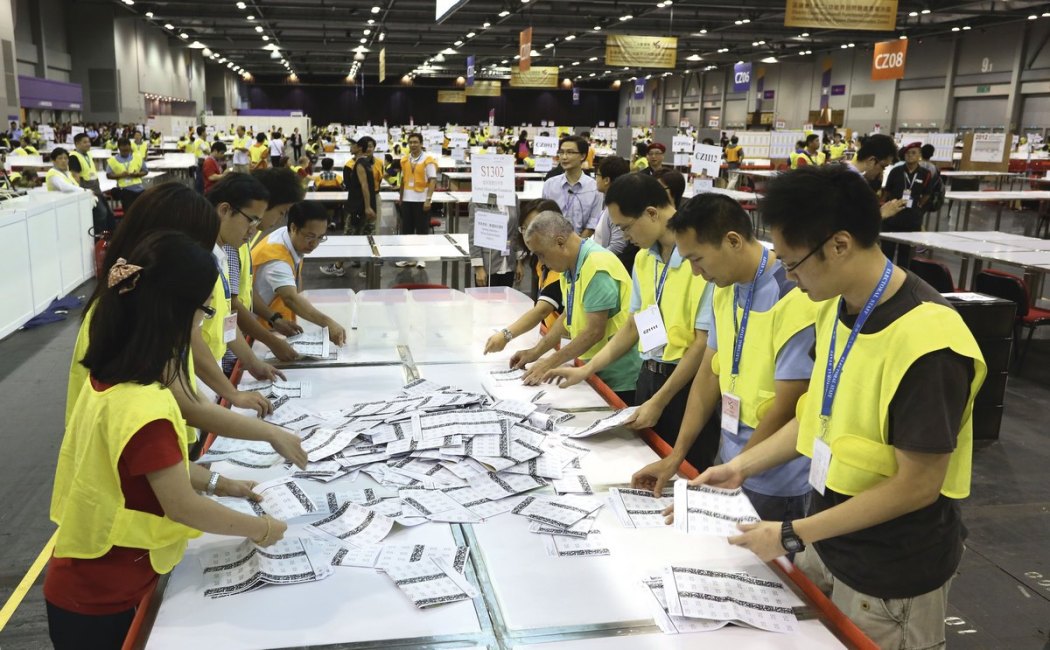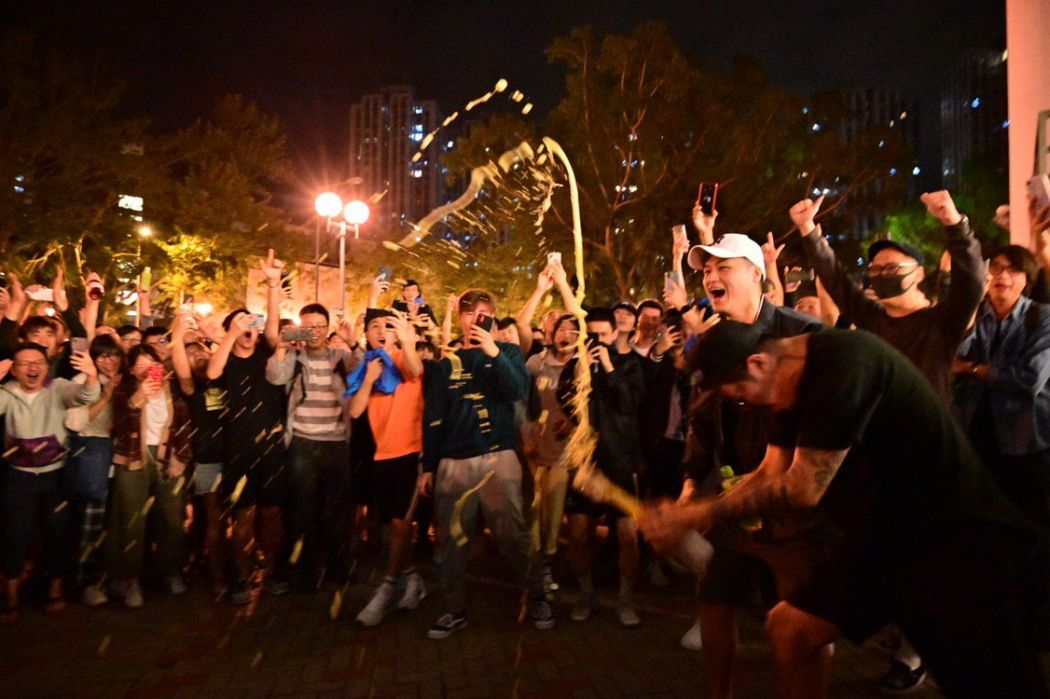The Hong Kong government plans to spend almost HK$38 million to encourage people to vote in December’s Legislative Council (LegCo) election, the first since a Beijing-ordered political overhaul which will sharply cut the number of directly elected seats.
A pro-Beijing lawmaker meanwhile urged the authorities to underline the principle laid down by Beijing – “patriots ruling Hong Kong” – in its campaign.
Government representatives told LegCo’s Panel on Constitutional Affairs on Monday that the publicity programme – estimated to cost around HK$37.7 million – is aimed at encouraging voter turnout in the December 19 election.

According to a paper submitted by the Constitutional and Mainland Affairs Bureau, the government in early October will launch a publicity campaign for “clean” elections, including forums to be produced by public broadcaster RTHK.
The government will also make programmes about the new electoral arrangements – implemented under a Beijing-steered election overhaul – including the electronic poll register and a special queue for voters in need.
Critics say the political overhaul is designed to shut out pro-democracy candidates, a charge the government denies.
Elizabeth Quat of the pro-Beijing DAB party questioned why the publicity proposal did not include plans to promote the principle of “patriots ruling Hong Kong.”
She said the government should make send a clear message that the city would not let “anti-China disrupting Hong Kong forces” use the election as a way to “invade” the governance structure.
“I think patriots ruling Hong Kong is another principle that should be highlighted in the publicity campaign, aside from promoting a fair and clean election,” the legislator said.

“We also have the national security law now. When we talk about the election, it is an important opportunity to promote… that under the national security law, we have fairer and safer elections,” she added.
The revamp, passed in the local legislature in May, was hailed by the authorities as a reform to “plug the loopholes” in the electoral system. But local election experts have criticised the shake-up as a major regression in democracy.
In response, Maisie Chan, the department secretary for the constitutional affairs bureau, said the government has continuously promoted the concept of patriots ruling Hong Kong on a website about the electoral revamp.
But Chan agreed with Quat that the bureau should “put more emphasis” on the principle in the promotional campaign, adding it could hold discussions with RTHK about adding this “important message” to broadcast announcements.
Quat also referred to the 2019 District Council elections which saw a landslide victory for pan-democrats, saying the polls were not “fair and clean.”
She said the government and some candidates had been “vilified” on “so-called Lennon Walls” and posters, adding that complaints were not properly dealt with by the authorities.

Chan said the bureau would work more closely with other departments to tackle the issues of posters on the street. She added: “As the social atmosphere gradually improves, we have confidence that the coming election can be clean and fair.”
Another legislator Jimmy Ng asked if the authorities had set aside resources for tackling rumours during the election period. The Business and Professionals Alliance for Hong Kong politician said that while some people may not direct call for the casting of blank ballots or urge people not to vote, they may spread “misleading” information.
“Some people with ulterior motives may vilify the election through some means,” he said.
Obstructing or preventing people from voting is now criminalised in Hong Kong under the electoral overhaul. Calling on others to cast a blank or invalid ballot is punishable by up to three years in jail.
Chan said her bureau would issue clarifications on its website in case of any rumours and make use of social media platforms to counter any hearsay remarks.
Support HKFP | Policies & Ethics | Error/typo? | Contact Us | Newsletter | Transparency & Annual Report | Apps
Help safeguard press freedom & keep HKFP free for all readers by supporting our team
























